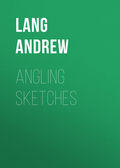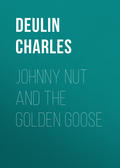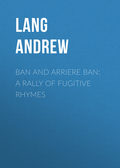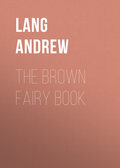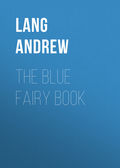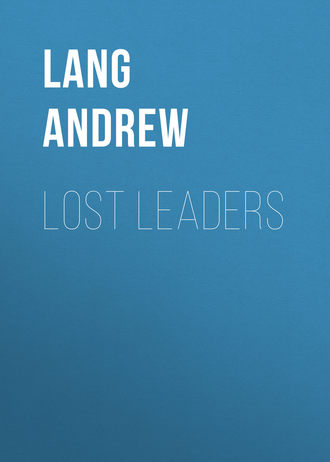
Lang Andrew
Lost Leaders
THACKERAY’S DRAWINGS
The advertisements of publishers make a very pleasant sort of reading. They offer, as it were, a distant prospect of the great works of the future, looming in a golden haze of expectation. A gentleman or lady may acquire a reputation for wide research by merely making a careful study of the short paragraphs in the literary papers.
There are three classes of people who take an interest in letters. There are the persons who read books; the much larger class which reads reviews; and, again, they who merely skim over the advertisements of new works. The last set live in a constant enjoyment of the pleasure of expectation; they pretend to themselves that some day they will find time to peruse the volumes in the birth of which they are interested, but, in fact, they live in the future. They are a month ahead of their friends who read reviews, and six months of the students who actually devour books themselves. Not only these eager lovers of literary “shop,” but all friends of English humour, must be glad to see that a collection of Mr. Thackeray’s sketches and drawings has been prepared for publication.
When the news spread over England of Mr. Thackeray’s sudden death, it was felt that a personal loss had been sustained by every one who cared for books and for style. Other men might write themselves out, their invention might become weary; and, indeed, Mr. Thackeray himself felt this fatigue. He wished he could get some one to do “the business” of his stories he told the world in a “Roundabout Paper.” The love-making parts of “the business” annoyed him, and made him blush, in the privacy of his study, “as if he were going into an apoplexy.” Some signs of this distaste for the work of the novelist were obvious, perhaps, in “Philip,” though they did not mar the exquisite tenderness and charm of “Denis Duval.” However that might be, his inimitable style was as fresh as ever, with its passages of melancholy, its ease, its flexible strength, and unlooked-for cadences. It was the talk about life, and the tone of that talk, which fell silent when Thackeray died, that we all felt as an irremediable loss. There is an old story that Pindar had never in his lifetime written an ode in praise of Persephone, the goddess of death and the dead, and that after he had departed from among living men, his shade communicated to the priests a new hymn on the Queen of Hades. The works of great writers published after their decease have somewhat of the charm of this fabled hymn; they are voices, familiar and unlocked for, out of the silence. They are even stranger, when they have such a slight and homelike interest as the trifles that fell unheeded from the pen or pencil of one who has done great things in poetry or art. Mr. Thackeray’s sketches in the “Orphan of Pimlico” are of this quality – caricatures thrown off to amuse children who are now grown men and women. They have the mark of the old unmistakable style, humorous and sad, and, as last remains, they are to be welcomed and treasured.
Mr. Thackeray’s skill with the pencil bore very curious relations to his mastery of the other art, in which lay his strength, but to which perhaps he never gave his love. Everyone has heard how, when a young man, he was anxious to illustrate “Pickwick,” which found more fitting artists in Seymour and H. K. Browne. Mr. Thackeray seems to have been well aware of the limitations of his own power as a draughtsman. In one of his “Roundabout Papers” he described the method – the secret so to say – of Rubens; and then goes on to lament the impotence of his own hand, the “pitiful niggling,” that cannot reproduce the bold sweep of Ruben’s brush.
Thackeray was like Théophile Gautier, who began life as a painter, and who has left to posterity a wonderful etching of his own portrait, pale, romantic, with long sweeping moustache, and hair falling over his shoulders. Both writers found their knowledge of the technique of painting useful in making their appreciation of art and nature more keen and versatile. But Mr. Thackeray’s powers had another field – he really did succeed in illustrating some of his own writings. Accomplished his style never was. There was a trace of the old school of caricature in the large noses and thin legs which he gave his figures. Nor was his drawing very correct; the thin legs of the heroes of “The Virginians” are often strangely contorted. He has even placed a thumb on the wrong side of a hand! For all that, he gave to many of his own characters a visible embodiment, which another artist would have missed. Mr. Frederick Walker, for instance, drew Philip Firmin admirably – a large, rough man, with a serious and rather worn face, and a huge blonde beard. Mr. Walker’s Philip has probably become the Philip of many readers, but he was not Mr. Thackeray’s. It is delightful to be sure, on the other hand, that we have the author’s own Captain Costigan before us, in his habit as he lived – the unshaven chin, the battered hat, the high stock, the blue cloak, the whiskeyfied stare, and the swagger. Mr. Thackeray did not do his young men well. Arthur Pendennis is only himself as he sits with Warrington over a morning paper; in his white hat and black band at the Derby, he has not the air of a gentleman. Harry Foker is either a coarse exaggeration, or the modern types of Fokers have improved in demeanour on the great prototype. But Costigan is always perfect; and the nose and wig of Major Pendennis are ideally correct. In his drawings of women, Mr. Thackeray very much confined himself to two types. There was the dark-eyed, brown-haired, bright-complexioned girl who was his favourite – Laura, Betsinda, Amelia; and the blonde, ringletted, clever, and false girl – Becky, Blanche, Angelica, who was the favourite of the reader. He did not always succeed in making them pretty, though there is a beautiful head of Amelia, in a court dance at Pumpernickel; but he always made the dark young lady look honest, and the fair young minx look a thing all soul and enthusiasm.
It was a note of Mr. Thackeray’s art, and probably one among other proofs that the higher fields of art were closed to him, that his success by no means corresponded to the amount of pains he took with his work. His drawings which appeared as steel engravings, were not unfrequently weak, while his sketches on the wood and his lithographs were much more free and masterly. There is, indeed, a sketch on the steel of poor Pen tossing feverishly in his mother’s comforting arms, which is full of passion and life and sentiment. But it was rare that success attended his ambition, and, indeed, another drawing of Pen and his mother admiring a sunset might have come out of a book of fashions of that remote period. It was in his initial letters and slight designs that Thackeray showed his best powers. There is much wistful tenderness in the little Marquise’s face as she trips down a rope-ladder in an initial letter of Vanity Fair. The bewigged shepherds and powdered shepherdesses of his favourite period are always reproduced with grace, and the children of his drawings are almost invariably charming. In the darker moods, when “man delighted him not, nor woman either,” children did not fail to please him, and he sketched them in a hundred pathetic attitudes. There are the little brother and sister of the doomed House of Gaunt, sitting under the ancestral sword that seems ready to fall. There is little Rawdon Crawley, manly and stout, in his great coat, watching the thin little cousin Pitt, whom he was “too big a dog to play with.” There is the printer’s devil, asleep at Pen’s door; and the small boy in “Dr. Birch,” singing in his nightgown to the big boy in bed. There is Betsinda dancing with her plum-bun in “The Rose and the Ring.” The burlesque drawings of that delightful child’s book are not its least attraction. Not arriving at the prettiness of Mr. Tenniel, and the elegance of Mr. Du Maurier, and falling far short of their ingenious fantasy, they are yet manly delineations of great adventures. The count kicking the two black men into space is a powerful design, full of action; and it would be hard to beat the picture of the fate of Gruffanuf’s husband. These and the rest are old friends, and there are hosts of quaint scribblings, signed with the mark of a pair of spectacles, scattered through the pages of Punch.
GOLF
While pheasant-shooters are enjoying the first day of the season, the votaries of a sport not less noble, though less noisy, are holding the great festival of their year. The autumn meeting of the Royal and Ancient Golf Club of St. Andrews is in full swing, and the words will suggest pleasant memories to many a golfer. Golf is not one of the more brilliant and famous pastimes of the day, though it yields to none in antiquity and in unassuming merit. The names of the winners of the gold medal and of the silver cross are not telegraphed all over the world as widely as Mr. Tennyson’s hero wished the news that Maud had accepted him to be. The red man may possibly “dance beneath his red cedar tree” at the tidings of the event of one of our great horse-races, or great university matches. At all events, even if the red man preserves his usual stoicism of demeanour, his neighbours, the pale-faces, like to know all about the result of many English sports the moment they are decided. Golf, as we have said, excites less general enthusiasm; but in people who love it at all, the love is burning, consuming; they will talk golf-shop in season and out of season. Few persons, perhaps, will call golf the very first and queen of games. Cricket exercises more faculties of body, and even of mind, for does not the artful bowler “bowl with his head?” Football demands an extraordinary personal courage, and implies the existence of a fierce delight in battle with one’s peers. Tennis, with all its merits, is a game for the few, so rare are tennis-courts and so expensive the pastime. But cricketers, football-players, tennis-players, would all give golf the second place after their favourite exercise; and just as Themistocles was held to be the best Greek general, because each of his fellows placed him second, so golf may assert a right to be thought the first of games. One great advantage it certainly has – it is a game for “men” of all ages, from eight, or even younger, to eighty. The links of St. Andrews are probably cleared just now of the little lads and the veterans, they make room for the heroes, the medalists, the great players – Mr. Mackay, Mr. Lamb, Mr. Leslie Balfour, and the rest. But at ordinary times there are always dozens of tiny boys in knickerbockers and scarlet stockings, who “drive out” the first hole in some twenty strokes of their little clubs, and who pass much of their time in fishing for their lost balls in the muddy burn. As for the veterans “on the threshold of old age,” it is pleasant to watch their boyish eagerness, the swaying of their bodies as they watch the short flight of their longest hits; their delight when they do manage to hit further than the sand-pit, or “bunker,” which is named after the nose of a long-dead principal of the university; their caution, nay, their almost tedious delay in the process of putting, that is, of hitting the ball over the “green” into the neighbouring hole. They can still do their round, or their two rounds, five or ten miles’ walking a day, and who can speak otherwise than well of a game which is not too strenuous for healthy age or tender childhood, and yet allows an athlete of twenty-three to put out all his strength?
Golf is a thoroughly national game; it is as Scotch as haggis, cockie-leekie, high cheekbones, or rowanberry jam. A spurious imitation, or an arrested development of the sport, exists in the south of France, where a ball is knocked along the roads to a fixed goal. But this is naturally very poor fun compared to the genuine game as played on the short turf beside the grey northern sea on the coast of Fife. Golf has been introduced of late years into England, and is played at Westward Ho, at Wimbledon, at Blackheath (the oldest club), at Liverpool, over Cowley Marsh, near Oxford, and in many other places. It is, therefore, no longer necessary to say that golf is not a highly developed and scientific sort of hockey, or bandy-ball. Still, there be some to whom the processes of the sport are a mystery, and who would be at a loss to discriminate a niblick from a bunker-iron. The thoroughly equipped golf-player needs an immense variety of weapons, or implements, which are carried for him by his caddie – a youth or old man, who is, as it were, his esquire, who sympathizes with him in defeat, rejoices in his success, and aids him with such advice as his superior knowledge of the ground suggests. The class of human beings known as caddies are the offspring of golf, and have peculiar traits which distinguish them from the professional cricketer, the waterman, the keeper, the gillie, and all other professionals. It is not very easy to account for their little peculiarities. One thing is certain – that when golf was introduced by Scotchmen into France, and found a home at Pau, in the shadow of the Pyrenees, the French caddie sprang, so to speak, from the ground, the perfect likeness of his Scottish brother. He was just as sly, just as importunate in his demands to be employed, just as fond of “putting at short holes,” more profane, and every bit as contemptuous of all non-golf-playing humanity as the boyish Scotch caddie, in whom contempt has reversed the usual process, and bred familiarity with all beginners.
The professional cricketer can instruct an unskilled amateur, can take his ill-guarded wicket, and make him “give chances” all over the field, without bursting into yells of unseemly laughter. But the little caddie cannot restrain his joy when the tyro at golf, after missing his ball some six times, ultimately dashes off the head of his club against the ground. Nor is he less exuberant when his patron’s ball is deep in a “bunker,” or sand-pit, where the wretch stands digging at it with an iron, hot, helpless, and wrathful. And yet golf is a sport not learned in a day, and caddies might be more considerate. The object of the game is to strike a small gutta-percha ball into a hole about five inches wide, distant from the striker about three hundred yards, and separated from him by rough grass and smooth sand-pits, furze bushes, and perhaps a road or a brook. He who, of two players, gets his ball into the hole in the smallest number of strokes is the winner of that hole, and the party then play towards the next hole. All sorts of skill are needed – strength and adroitness, and a certain supple “swing” of the body, are wanted to send the ball “sure and far” in the “driving” part of the game. Nothing is so pleasant as a clean “drive.” The sensation is like that of hitting a ball to square-leg, fair and full, at cricket. Then the golfer must have the knack to lift his ball out of deep sand with the “iron,” and to strike it deftly “a half-shot” up to the hole with the “cleek;” and, lastly, coolness and a good eye when he “putts” or hits his ball actually up to the very hole.
Any degree of skill in these varied feats makes golf a delightful game, if the opponents are well matched. Nor are the charms of scenery wanting at St. Andrews, the headquarters of the sport. There is no more picturesque town in Scotland than the little university city. From the plain of the estuary of the river Eden, across the long leagues of marsh land and the stretches of golden sand and brown, the towers of St. Andrews – for it is a town of many towers – are seen breaking the sky-line. Built on a windy headland, running out to the grey northern sea, it reaches the water with an ancient pier of rugged stone. Immediately above is the site of a chapel of immemorial age, and above that again are the ruins of the cathedral – gaunt spires with broken tracery, standing where once the burnished roof of copper flashed far across the deep. The high street winds from the cathedral precinct past an old house of Queen Mary Stuart, past ruined chapels of St. Leonard’s, and the university chapel with its lovely spire, down to the shores of the bay; and along the bay run the famous “links,” where the royal and ancient game has its cradle and home. Other links, as Prestwick, or North Berwick, may vie with those of St. Andrews in extent, or in the smoothness of the putting greens, or in the number and hardness of the “hazards,” or difficult places; but none offer so wide and varied an extent of scenery, from the melancholy stretch of the parallel sands to the hills in the west, the golden glitter of the beach, beneath the faint aërial blue of the still more distant hills across the firth, while behind is the city set on its cliffs, and proud with its crown of spires. The reflected sunset lingers on the walls and crags and towers, that shine imaged in the wet sands, the after-glow hangs over the eastern sky, and these have their charm; but their charm yields to that of golf. It is a sign that a man has lost heart and hope when he dilates on the beauty of the scenery, and abstracts his attention from what alone would interest him were he winning – the “lie” of his ball. Who can stop to think of the beauties of nature, when he and his antagonist are equal, and there are only two more holes left to play in the match for the medal? It is a serious moment; not one of the little crowd of observers, the gallery that accompany the players, dares to speak, or even cough. The caddie who sneezes is lost, for he will be accused of distracting his master’s attention. The ladies begin to appear in the background, ready to greet the players, and to tell the truth, are not very welcome to the nervous golfer. Everything turns on half an inch of leather in a “drive,” or a stiff blade of grass in a putt, and the interest is wound up to a really breathless pitch. Happy he is who does not in his excitement “top” his ball into the neighbouring brook, or “heel” it and send it devious down to the depths of ocean. Happy is he who can “hole out the last hole in four” beneath the eyes of the ladies. Striding victorious into the hospitable club, where beer awaits him, he need not envy the pheasant-slayer who has slain his hundreds.
ART OF DINING
There is such a thing as nationality in dining, just as Mr. Browning has proved, in a brilliant poem, that there is nationality in drinks. Surveying mankind with extensive view, the essayist recognizes that the science is not absolutely ignored in Turkey, where we cannot but think that an archaic school retains too much wool with the mutton, and that dining (like Egyptian Art) is rather a matter of sacred and immemorial rules than in any worthy sense of the word a science. The Chinese and Japanese have long been famous for their birds’-nest soup, and for making the best, after his lamented decease, of the friend of man – the dog. About the Australians and New Zealanders, perhaps the less said the better. Many students will feel that our own colonists have neglected to set a proper example to these poor heathen races, who, save kangaroos, have no larger game than rats. The Englishman in Australia revels in boundless mutton, in damper, in tea, and in the vintages of his adopted soil, which he playfully, and patriotically, compares to those of the Rhine. It is impossible, on the other hand, not to recognize the merits of the Russian cuisine, where the imported civilization of France has found various good traditional ideas still retained by the Sclavonic people; and where the caviare, “with that pale green hue which denotes the absence of salt,” is not to be overlooked. In melancholy contrast to the native genius of the Sclavs is the absolute dearth of taste and sense in gastronomic Germany. If a map of the world could be made – and why not? – in which lands of utter darkness in culinary matters should be coloured black (like heathen countries in the missionary atlas, and coalfields in the map of physical geography), the German Empire would be one vast blot on Central Europe. Science might track Teutonic blood by the absence of respectable cookery; and in England too obvious tokens would be found of that incapacity of the art of dining which we brought from the marshes of Holstein. In America, nature herself has put the colonists on many schemes for the improvement of dinner, and terrapin soup is gratefully associated with memoirs of Virginia – in the minds of those who like terrapin soup. The canvas-backed duck has been praised as highly as the “swopping, swopping mallard” of a comfortable college in Oxford. As to the wild turkey, the poet has not yet risen in America who can do justice to the charms of that admirable bird. Mr. Whitman, who has much to say about “bob-a-links” and “whip-poor-wills,” and some other fowl which sing “when lilacs bloom in the garden yard,” has neglected, we fear, the wild turkey, simply because the Muse has not given this bird melody, and made it, like the robin-redbreast, which goes so well with bread-crumbs, “an amiable songster.” American genius neglects the turkey, and positively takes more interest in the migrations of the transatlantic sparrow. If the nobler fowl can cross the water as safely as the beef and mutton of everyday life, he will receive the honour he deserves in this country. Some students with the deathless thirst of scientific men for acclimatization, speak well of the Bohemian pheasant, which, unlike some other denizens of Bohemia, is fat. But there are probably less familiar birds in America that rival the duck and the wild turkey, and excel the Bohemian pheasant. The existence of maize, however, on the Western Continent has been a snare to American cooks, who have yielded to an absorbing passion for hot corn-cakes.
France is, of course, the land in which the Muse of cooking is native. “If we turn north towards Belgium,” says a modern author, “we shall find much that is good in cooking and eating known, if not universally practised.” He has also made the discovery that the Belgian air and climate are admirably suited to develop the best qualities of Burgundy. It is from these favoured and ingenious people that England ought to learn a lesson, or rather a good many lessons. To begin at the beginning, with soup, does not every one know that all domestic soups in England, which bear French names, are really the same soup, just as almost all puddings are, or may be, called cabinet pudding? The one word “Julienne” covers all the watery, chill and tasteless, or terribly salt, decoctions, in which a few shreds of vegetables appear drifting through the illimitable inane. Other names are given at will by the help of a cookery-book and a French dictionary; but all these soups, at bottom, are attempts to be Julienne soup. The idea of looking on soup “as a vehicle for applying to the palate certain herbal flavours,” is remote indeed from the Plain Cook’s mind. There is a deeply rooted conviction in her inmost soul that all vegetables, which are not potatoes or cabbages, partake of the nature of evil. As to eating vegetables apart from meat, it was once as hard to get English domestics to let you do that, as to get a Cretan cook to serve woodcock with the trail. “Kopros is not a thing to be eaten,” says the Cretan, according to a traveller; and the natural heart of the English race regards vegetables, when eaten as a plat apart, with equal disfavour. Probably the market gardener’s ignorance and conservatism are partly in fault. Cabbage he knows, and potatoes he knows, but what are pennyroyal and chervil? He has cauliflower for you, but never says, “Here is rue for you, and rosemary for you.” Cooks do not give him botany lessons, and a Scottish cook, deprived of bay-leaf, has been known to make an experiment in the use of what she called “Roderick Randoms,” members of the vegetable kingdom which proved to be rhododendron. As for pennyroyal, most people have only heard of it through Mr. Bonn’s crib to Aristophanes.
When it comes to fish, it is allowed that we are not an insular people for nothing. There are other forms of good living that Paris knows not of, so to speak, at first hand, native to England. Turtle soup, turbot and lobster sauce, a haunch of venison, and a grouse, are, we may say without chauvinism, a “truly royal repast.” But we incur the contempt of foreigners once more in the matter of wines. To like sherry, the coarse and fiery, is a matter of habit, which would teach us to love betel-root, and rejoice in the very peculiar drink of the South Sea islanders. Some purists include champagne in the same condemnation – the champagne, that is, of this degenerate day. When the Russians drank up the contents of the widow Clicquot’s cellars, they found a sweet natural wine, to which they have constantly adhered. But Western Europe, all the Europe which, as M. Comte puts it, “synergizes” after light and positivism, has tended towards champagnes more or less dry. The English serve this “grog mousseux” as a necessity for social liveliness, and have not come back to the sweet wine which was only meant to be drunk with sweets. A Quarterly reviewer is very severe in his condemnation of a practice which will only yield to the stress of some European convulsion in politics and society. These matters are like certain large reforms, they either come to pass without observation in the slow changes of things, or great movements in the world are accompanied by small ones in everyday life. Dry champagne came in after the Revolution; it may go out after a European war, which will make wine either expensive, or, if cheap, a palpably spurious article. “Monotony and base servile imitation” may be the bane of eating and drinking in England; but the existence of monotony shows that the English really do not care very much about dining considered as a fine art. When they do care, they cover their interest in the matter decently, with the veil of humorous affectation. They cannot spontaneously and sincerely make a business of it, as the French do in all good faith. Even if they had a genius for dining, we doubt if a critic is right in thinking they should dine at six o’clock or seven at latest. Whether in the country or in town, the business or amusement of the day claims more time. Sportsmen, for example, in early autumn could not possibly return home by six very frequently, and in summer six o’clock may be so sultry an hour that the thought of food is intolerable. Still, it must be admitted that the unawakened state of the market-gardener and the condition of English soups are matters deserving serious consideration.



